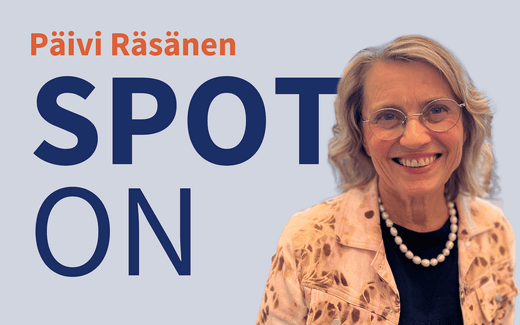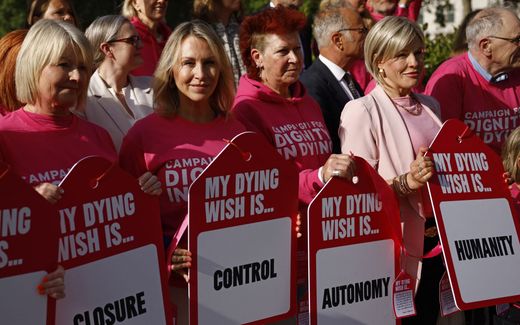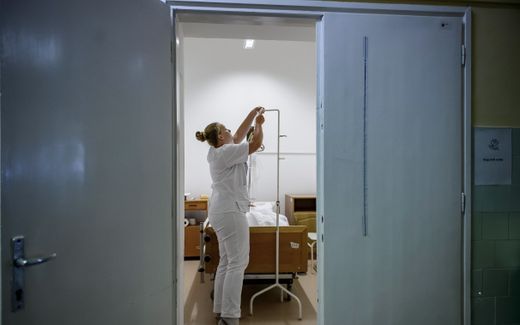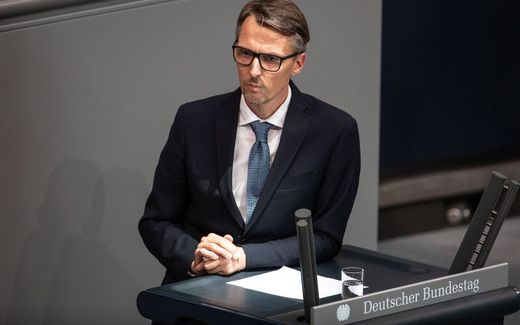Europe has lost the fear of death and goes for euthanasia

More and more people die of euthanasia after a lethal injection. Photo AFP, Simon Wohlfahrt
Opinion
King Agag of Amalek said the “bitterness of death” is gone. 1 Samuel 15 shows how proudly he erects himself and steps up to the prophet. This image comes to my mind when I consider how many European countries make end-of-life arrangements. The fear of death is gone.
Stay up to date with Christian news in Europe? Sign up for CNE's newsletter.
For many fellow-Dutch people, the discussion about euthanasia feels like something of the past. Back then, you could talk with friends about whether “unbearable and hopeless suffering” meant you had to ‘help’ someone. This debate was also widely discussed in the media. With the introduction of the euthanasia law in 2002, that discussion was settled. When you switched on the radio, there was something else.
Meanwhile, other European countries are now having the same debate as we had then. Slovenia decided this month to give room for assisted suicide. In a referendum last year, 55 per cent said they were open to it.
By the way, 55 per cent for a life-and-death issue is not what you call a broad consensus. Especially when we see that the turnout in that poll was just 41 per cent.)
However, Slovenia joins a long line of countries working on active life termination.
- France and Britain decided earlier this year to give space to assisted suicide.
- Austria already did so in 2022.
- In Italy, the Tuscany region has started on its own, very likely as a way to force the national government to follow.
- Cyprus has a bill pending, and Iceland and Ireland are seriously considering it.
- In Portugal, the introduction of euthanasia is stuck on some formal obstacles. After this is organised, the matter is settled.
In Germany, the government is mandated to regulate assisted suicide. In 2020, the Constitutional Court said the ban on it hinders self-determination. Sooner or later, the government has to legislate for something that meets the court’s order. Note: As recently as 2001, the German Justice Minister (Herta Däubler-Gmelin) called the Dutch euthanasia law a “serious breach of taboo”. Things can change quickly.
When looking over Europe, we can conclude that sooner or later, many countries will go in the same direction.
A tricky question, however, is why one country is early with such legislation and another is late. That Germany puts the brakes on, we understand from its Nazi past. That the liberal Protestant Netherlands wants to be the first, we might also understand.
But in Norway, the debate has yet to begin. Earlier this month, the chief editor Vebjørn Selbekk of the Christian daily Dagen wrote that he only hears parties calling for widening in the current election campaign for the first time. But Norway is by no means more conservative than the Netherlands. There must be another factor at work here.
Nevertheless, the broad trend towards freer euthanasia itself can be explained. Just look at this: People are getting older, and care is improving. In addition, values are changing: autonomous people prefer to decide for themselves about life and death. And then at the bottom lies this: The fear of death is gone. If there is anything to fear, you can fear in private. But for lawmakers, death is a material phenomenon.
In several countries, Christians in care have talked blisters on their tongues for decades by advocating reverence for life. They have done a good job. And sometimes, they were able to do something meaningful. But in the end, they have been unable to change the course.
Death is getting serious only with the awareness that God and man meet after death. Once that notion is no longer alive in a culture, you can at best get extra money for palliative care.
If you want to reverse all this new end-of-life legislation, you must return to the Origin of life. And that is the hope for Christians. Teach the nations that the living and holy God created them, and they will cherish life again.
Related Articles









